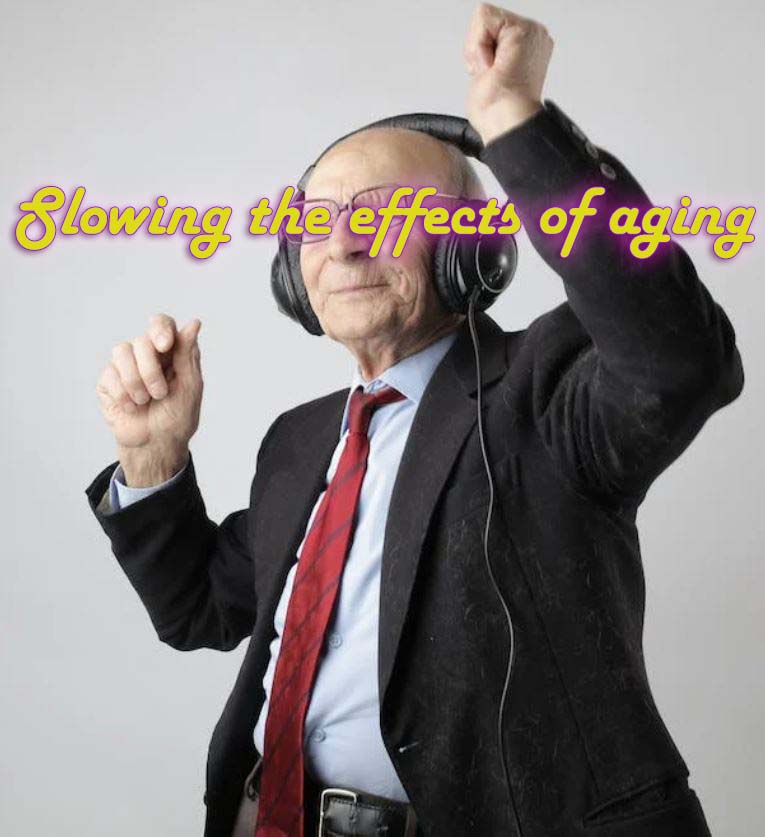Aging is a natural process that every individual undergoes. It is characterized by gradual changes in physical and mental functioning, ranging from appearance to cognitive abilities, immune response, and overall body metabolism. Despite the inevitable nature of aging, the desire to maintain youthful vitality and slow down the process has been a topic of immense interest in contemporary society.
The Effects of Aging
Aging often effects us in multiple ways, which are both biological and psychological in nature. Biological changes primarily involve declines in body functionality, while psychological changes concern shifts in cognition, emotion, and social relationships.
Biological Changes: As we age, our bodies undergo numerous transformations. Skin becomes less elastic, leading to wrinkles and age spots. Hair may thin and turn grey. Hearing and vision can deteriorate, and bones can become more brittle. On a cellular level, cells lose their ability to divide and regenerate, leading to tissue degradation and increased susceptibility to diseases. The cardiovascular system can also become less efficient, and the metabolism slows down, which may lead to weight gain. The immune system weakens over time, leading to increased susceptibility to infections and diseases.
Psychological Changes: Aging also has significant psychological impacts. Most people experience things such as memory loss, slower processing of new information, and confusion – but don’t we all? There can be shifts in mood and increased risk of conditions such as depression and anxiety. As one grows older, changes in social roles and relationships, retirement, and the death of loved ones can also affect psychological well-being.
Slowing Down the Aging Process

Aging is a complex process influenced by genetics, environmental factors, and lifestyle choices. While we can’t control our genetic predispositions, we can modify our lifestyle and environment to promote healthy aging.
Healthy Eating: Diet plays a vital role in aging. The effects of aging can be slowed significantly by diet. Antioxidants found in berries, dark chocolate, nuts, and vegetables can counteract damage from free radicals, unstable molecules that can harm cells. Furthermore, reducing the amount of sugar that you consume can help you maintain that youthfulness just a little bit longer.
Physical Activity: Regular exercise promotes cardiovascular health, strengthens the immune system, and supports mental well-being. It can also maintain muscle mass and bone density, mitigating the risk of osteoporosis and frailty.
Mental Stimulation: Keeping the brain active and engaged helps preserve cognitive abilities and may delay the onset of age-related neurological diseases. Activities like reading, solving puzzles, playing musical instruments, or learning a new language can stimulate brain cells and promote cognitive health.
Adequate Sleep: Sleep is vital for the body’s repair mechanisms. Disrupted or insufficient sleep can accelerate aging by increasing inflammation, impairing immune function, and disrupting hormonal balance.
Social Engagement: Staying socially active can also slow aging. Being happy with your social life can slow down the effects of aging. Having strong social networks can combat loneliness, which can negatively impact mental health and lead to conditions like depression and anxiety.
Routine Health Check-ups: Regular health screenings can help detect diseases at early stages and implement necessary interventions. Getting a full exam by your dentist, as well as regular teeth cleanings also hold some weight of importance.
Stress Management: Chronic stress can accelerate aging by increasing inflammation and oxidative stress, disrupting sleep, and contributing to unhealthy behaviors like overeating and substance misuse. Pick up a new daily activity to help mitigate stress such as yoga, meditation, or a deep breathing exercise.
Identifying the Signs of Aging
While many signs of aging are visible, like grey hair and wrinkles, others are more subtle and subjective. Here are some ways to identify the less obvious signs of aging:
Slower Recovery: A common sign of aging is slower recovery time. This could be noticeable after physical activities, with longer times needed to rest and recuperate.
Changes in Memory: It’s normal for memory to be affected as we age, particularly short-term memory. However, significant memory loss is not a normal part of aging and should be evaluated by a healthcare professional.
Reduced Strength or Stamina: Decreased strength and stamina could indicate age-related muscle loss or cardiovascular inefficiencies.
Changes in Mood or Attitude: Becoming increasingly agitated over small things, perpetual feelings of sadness, and losing interest in the things you once loved can be indicative of psychological changes that are due to your age.
Difficulty with Balance or Coordination: Problems with balance or coordination could suggest age-related changes in the brain or nervous system.
Aging is a complex process influenced by multiple factors. Despite aging being inevitable, individuals can adopt lifestyle choices that slow down the aging process and improve the overall quality of your life. Regularly monitoring one’s health and seeking professional help when unusual signs of aging are noticed can also help manage the aging process more effectively.

